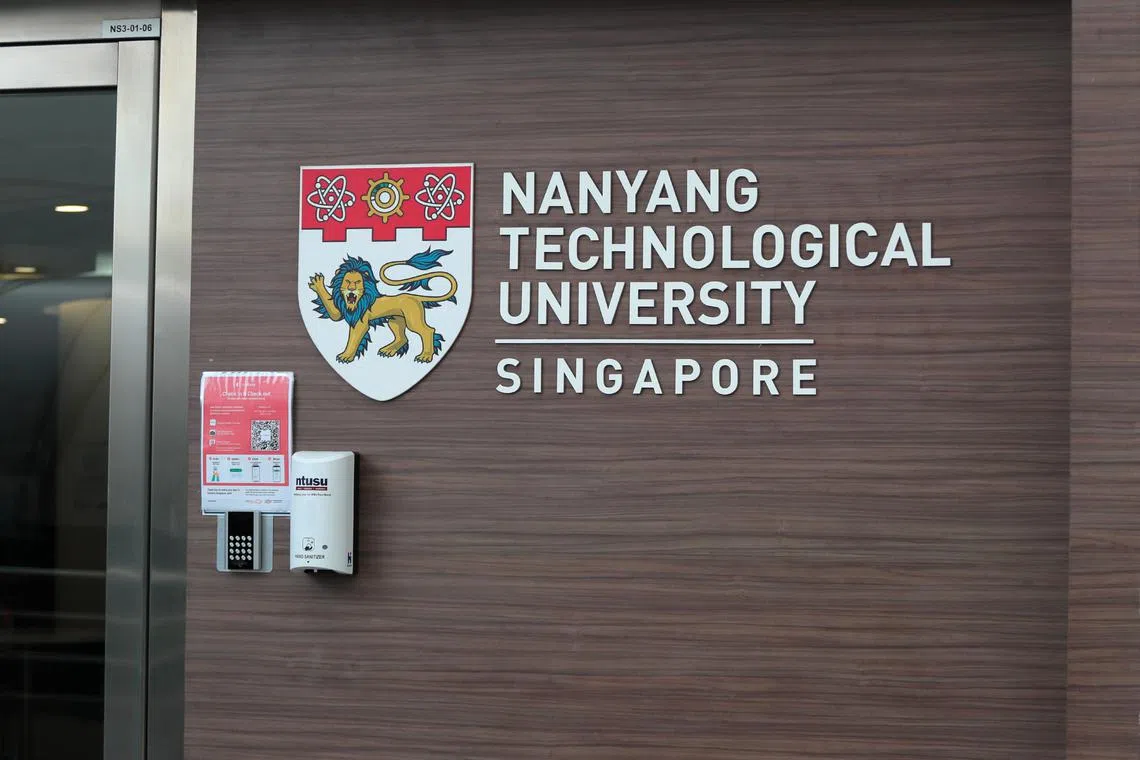NTU upholds zero grade for student accused of using AI in essay; panel found 14 false citations or data
Sign up now: Get tips on how to help your child succeed

The essay was part of a course on health, disease outbreaks and politics at NTU’s School of Social Sciences.
PHOTO: ST FILE
- NTU stated citing non-existent sources is a serious academic misconduct, undermining research integrity, and often linked to AI-generated inaccuracies.
- Three students in a health and politics course faced penalties for using Gen AI tools despite explicit prohibition and warnings of a zero grade.
- Appeals for two students were rejected, internal records will document misconduct, and NTU urges respect for the appeals process and individual well-being.
AI generated
SINGAPORE - Nanyang Technological University (NTU) has upheld the zero mark given to a student penalised earlier for academic misconduct, following an appeal made by the student.
In a statement on July 18, the university said the panel, which reviewed the student’s appeal, found 14 instances of false citations or data in her essay, noting that these were not mere “typos” or typographical errors. One example was the citing of non-existent sources.
“The panel stipulated that citing non-existent sources is a serious form of academic misconduct as the accurate citation of sources is the foundation of academic research and writing,” NTU said.
“Citing non-existent sources constitutes a serious form of academic misconduct.”
The university added that such errors are commonly associated with factual inaccuracies generated by generative artificial intelligence (Gen AI) tools.
The assignment in question was part of a course on health, disease outbreaks and politics at NTU’s School of Social Sciences.
Three students enrolled in the module had earlier in Apri l received a zero grade for the same essay
The case has drawn attention to the growing use of AI in education, and sparked discussion about its impact on academic integrity and critical thinking.
It came to light after a Reddit post on June 19 by the student in the appeal case went viral. In the post, she claimed she was accused of using AI in a final essay for a module because she had made errors in her citations and used a reference organiser.
NTU had earlier confirmed that the use of Gen AI tools had been explicitly prohibited for written assignments for the course, with students warned that any AI-generated content would result in a zero grade. The assignment was worth 45 per cent of the final grade.
The student whose appeal case was heard by the panel had said earlier that she had used only a reference organiser and had submitted updated citations to rectify her earlier mistakes.
On the panel’s decision to keep the zero mark, she told The Straits Times when contacted on July 18 that while she does not agree fully with its reasoning and conclusion, she was ready to move on.
“I respect NTU’s decision and treat it as a case of bad luck on my end,” she said.
Meanwhile, a request for an appeal by the second student, who was also penalised, was earlier rejected. The third student did not submit an appeal.
All cases of academic misconduct are documented in the internal records of the students, NTU said on July 18.
“The outcome of the appeal panel is final,” said NTU. “We urge everyone to respect the integrity of the appeals process and refrain from making personal attacks against any individual involved.”
“The university is committed to safeguarding the well-being of the university’s faculty, staff and students.”



